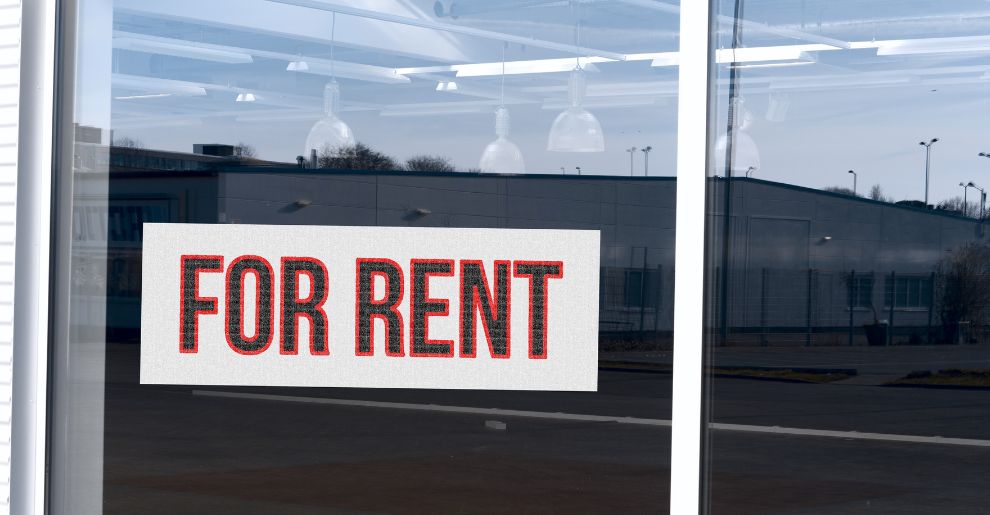Renting a commercial property: tenant responsibilities

When you are considering renting a commercial property and taking on a commercial property lease, it’s crucial to understand your obligations as a tenant. From managing safety concerns to financial responsibilities and property upkeep, this article will discuss some key aspects you need to be aware of as a responsible tenant.
There are further general obligations that you as a commercial tenant will be responsible for, over and above what is required of you within the lease agreement:
When taking on a property via a lease you must also:
- Undertake a health and safety risk assessment.
- Undertake a fire risk assessment.
- Be responsible for fire safety, electrical, and gas equipment checks.
- Check to see if there is any asbestos, and if required conduct any management of this.
- Insure the contents of the property.
- Possibly obtain insurance for your customers.
As a tenant under the terms of a lease you need to pay careful attention to:
Rent payments
The most obvious obligation on you as a tenant is to ensure that you pay the rent, together with any service charge and insurance, in accordance with your lease. Your lease will mandate that you pay these charges in advance, either monthly, quarterly or on a specific date as agreed between you and the landlord.
If any rent or other sums under the lease are not paid within a specific timeframe, you may be required to pay interest to the landlord at the interest rate specified in your lease. The landlord will also have the right to re-enter and forfeit the property (this is when the landlord will change the locks and stop you from getting in) if the rent and relevant charges are not paid within the specified timeframe. Landlord re-entry will immediately terminate the lease.
Repair and maintenance
There may be obligations in your lease that require you to repair and maintain the property during your ownership of the lease. These provisions will normally require you to keep the property clean and in good repair and condition.
Depending on the nature and use of the property, the repair and maintenance obligations can vary. You must carefully consider each provision and ensure before completing the lease that you can comply with all of them throughout the term.
The lease may also include obligations for you to decorate the property, which may involve, provisions for painting the interior and exterior walls, maintaining any woodwork on the property and replacing flooring.
If you fail to comply with the repair and maintenance provisions, the landlord usually will have the right to enter the property to carry out these works. If the Landlord does this then the costs of all the repairs and the landlord’s time to charge you as the tenant and is considered a rent payment. If you therefore do not pay the landlord can end the lease
Alterations to the property
When taking on a property lease, you may want to make physical changes to the property to fit your business needs. To carry out such works or alterations to the property you will need to obtain the landlord’s consent. The landlord will often instruct their solicitor to deal with the permission to make such changes and this will be a cost to you.
If you have undertaken any alterations to the property or installed fixtures and fittings, your lease is likely to also require you to remove these and return the property to its original state (before these changes were made) when the lease comes to an end.
Break notice
This is when you have the right in the lease to serve a notice on the landlord to end the lease early.
If your lease includes the right for you to serve notice on the landlord to terminate the lease, it may impose conditions that must be met before your break notice can take effect. If these conditions are not complied with at the relevant break date, the landlord could deem the break notice unenforceable. This would mean the lease doesn’t come to an end and you are stuck with the lease for the full lease term.
Some leases require the break notice to be served in a very specific manner, and you must diligently read these provisions or engage a solicitor to serve the break notice on your behalf. For example, if the lease requires the break notice to be served on blue paper, then best to serve on blue paper!
Breach of lease
Should you breach a term of the lease then it is important for you to consider any consequences outlined in the lease.
The landlord will have the right to enter and reclaim the property if any of the lease’s conditions are violated, which may occur without prior notice. You will then have lost the lease and the hard work you put into it.
When entering into a lease, we strongly advise you to seek legal advice to ensure that you understand the obligations you will undertake and to confirm that there are no burdensome obligations imposed upon you as the tenant.
Navigating the terms of a commercial lease can be a complex undertaking. A qualified solicitor can help you understand your obligations and make certain that no undue burdens are placed upon you. Please consult with a solicitor to make informed decisions in your commercial leasing journey.
If you would like any more information relating to this article then please feel free to contact me via telephone – 020 8221 8073, via email here, or visit my profile here.
This is not legal advice; it is intended to provide information of general interest about current legal issues.
